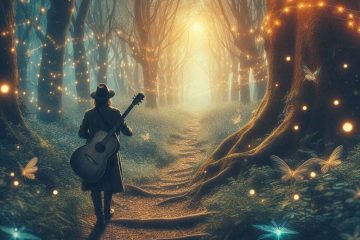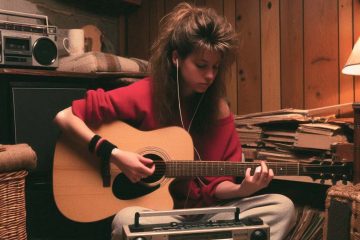Recently I was listening to some interviews with an author “Tom O’neil”. He released a book in 2019 called “Chaos”. It is quite the tale and worth your time if you’re into an alternative and compelling take on who Charles Manson was and what was really going on in California in the late 60’s. For the record, I’m not a true crime kind of guy and this is definitely more cultural/historical in flavour.
With my head in the late 60’s this led me to listening to some playlists for the era to remind myself of the music in this period. It was a lot of fun and an interesting journey to take if you enjoy that sort of anthropological/musicology aspect of music.
Hang On, I Know That Sound
Unsurprisingly one of the things that stuck out to me was the influences from this period that I could hear in music that was more contemporary. This got me thinking, if you’re inspired by a certain artist in your own writing, what would happen if you went back to their inspirations to get inspiration?
I’ve mentioned this video before but it’s a great illustration of the point.
I know this isn’t a particularly new idea but have you ever been on that musical journey? I thought it’d be worth breaking it down and suggesting possible approaches we could take to inspire our own songwriting.
Increasing Your Music Vocabulary
As a songwriter it’s worth our time to listen to music outside of the genre we generally write in. Expanding your musical vocabulary is a wonderful thing.
When we listen to the artists we love we’re getting their take on their influences. But their only giving us the bits that inspire them and then they’re translating those ideas for us. But what if they “missed” something really neat that we really like?
Going back to their inspiration allows you to uncover more music you might love or aspects of their music that you can take to inspire your own work.
How Can We Use This Idea?
- Pick one of your favourite artists and start to dig into their story to find out who their inspirations were. Interviews and biographies are often great sources for these sorts of detail. You can obviously search those up but if you’re into AI as an assistant, I recommend Google’s Gemini as a fairly reliable tool to direct you to these sources as well as help summarise the details. Here’s an example to get you started: https://g.co/gemini/share/6ca834da8eab
- Dive deep into one artist that inspired your inspirational artist. Keep it to one so that you can immerse yourself in that artist’s sound. Explore their catalogue, make a playlist for inspiration, watch live performances, read interviews, write a song report on their 3 – 5 most inspirational songs. You might end up wanting to explore their influences a little too.
- If you’re not already doing it, find a way that works for you to make an “inspiration library” where you collect ideas from other artists that you’d like to incorporate into your own music making. Whilst you’re exploring these inspiration artists, take note of musical ideas you could bring to your own music.
- Repeat the process above with another of your artists inspirations.
The Takeaway
Going back upstream to find the source of some of your favourite artist’s inspiration is a rewarding journey. Not only can you discover some great music, you’re expanding your music vocabulary and adding options to your own songwriting palette that you can borrow from.
Songwriting is a journey and we can become a little listless at times if we don’t have a direction to head in. An exercise like this can help focus and challenge us which will lead to growth.



0 Comments